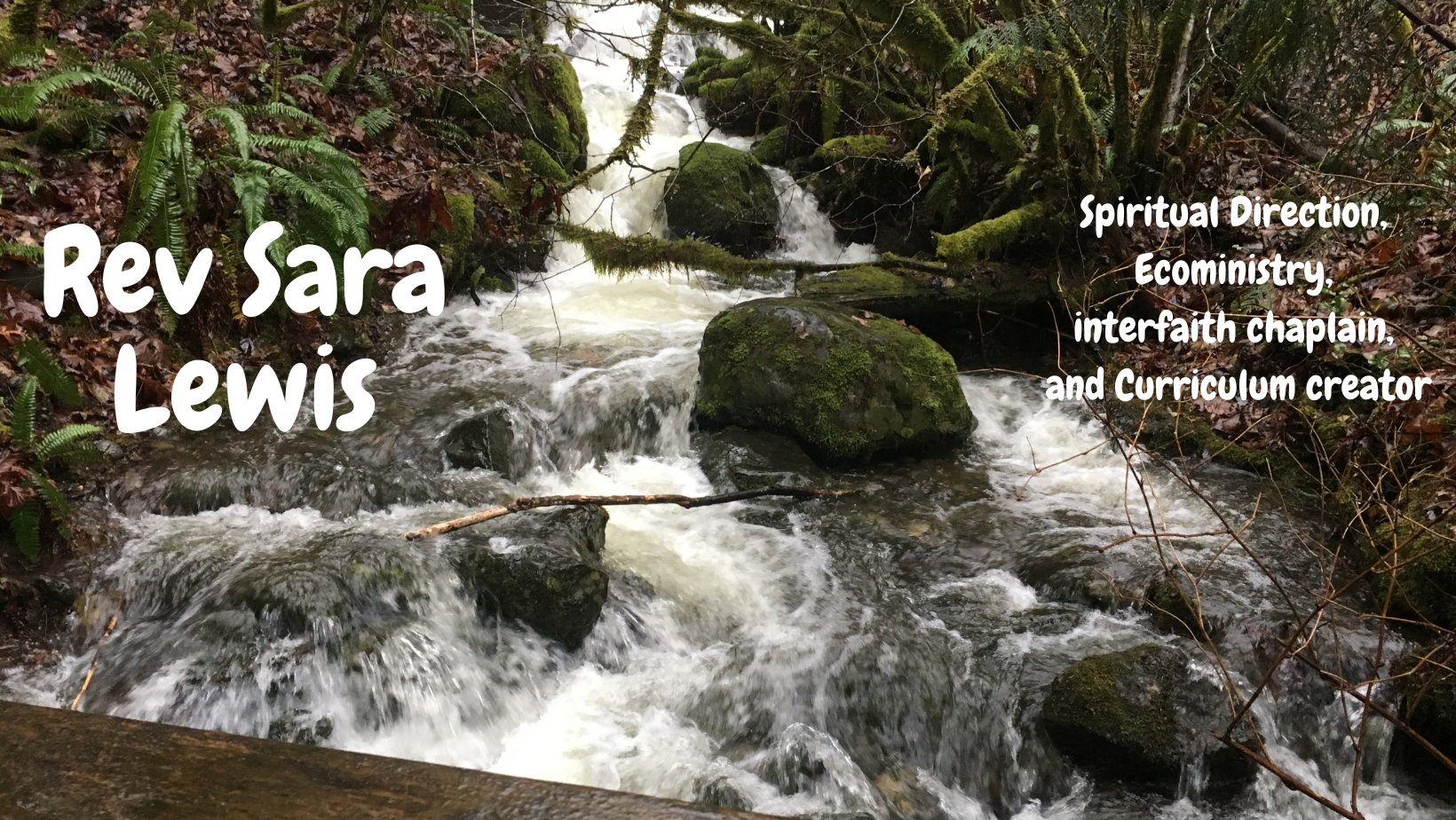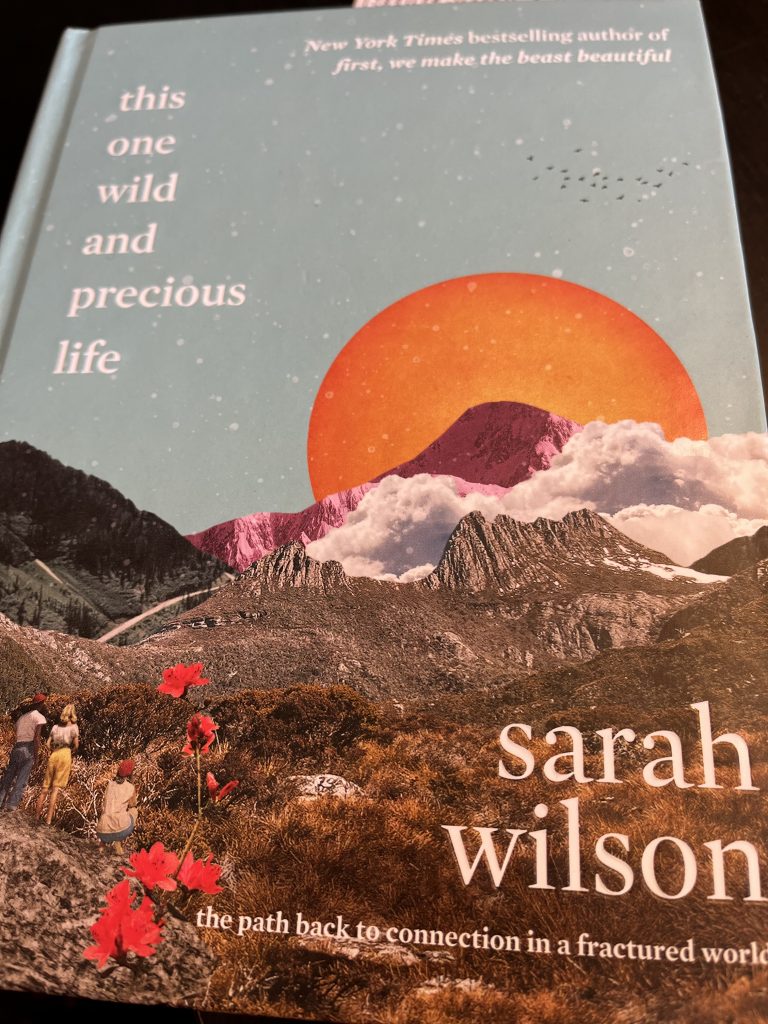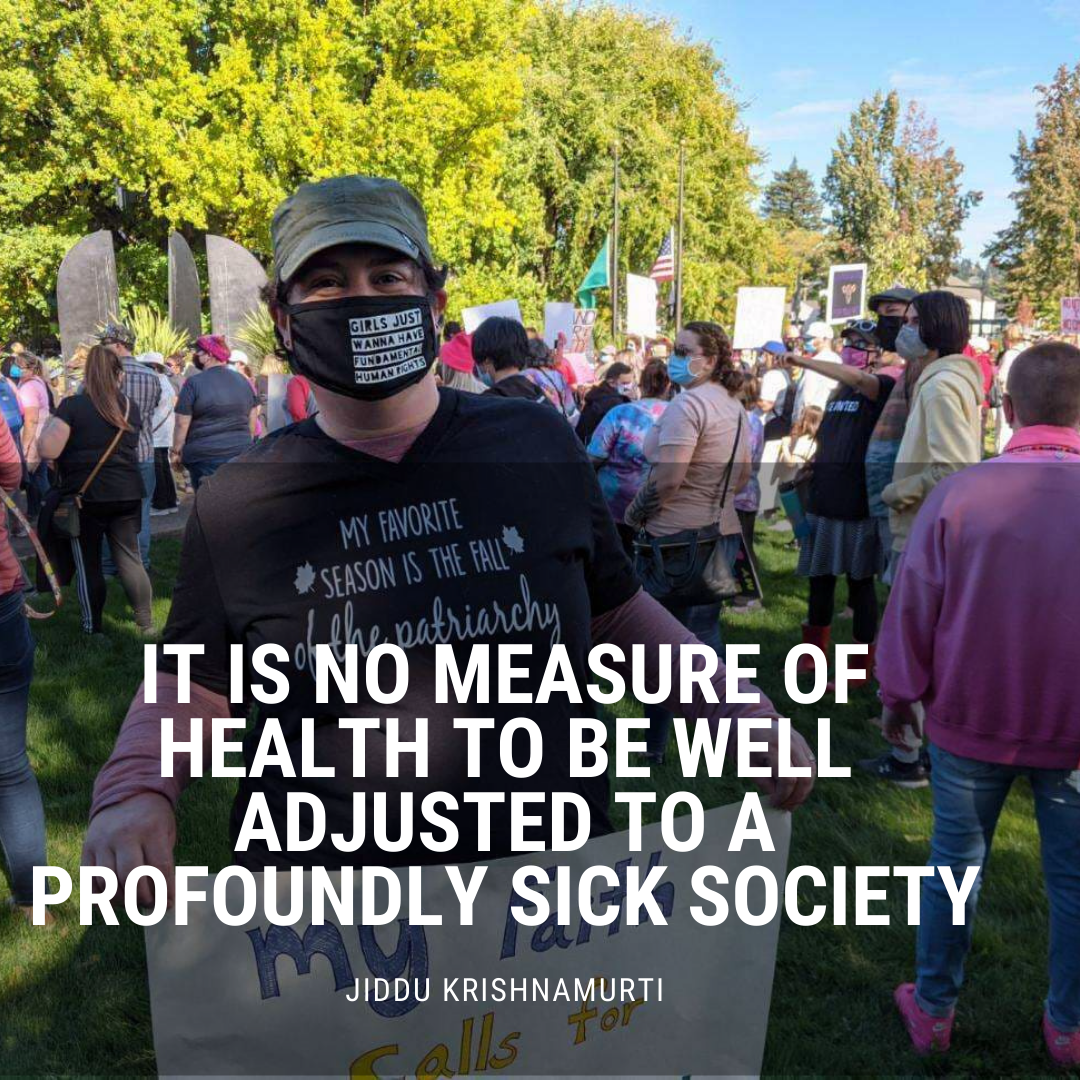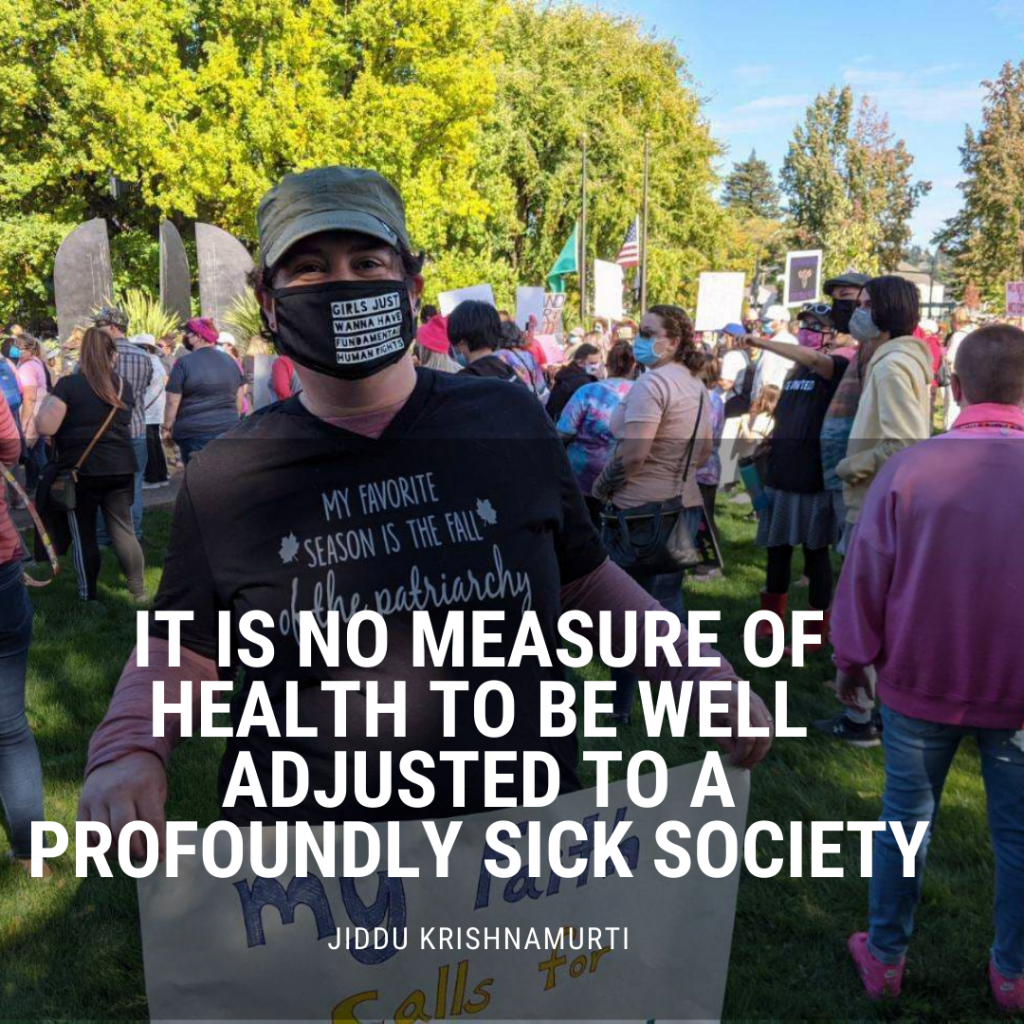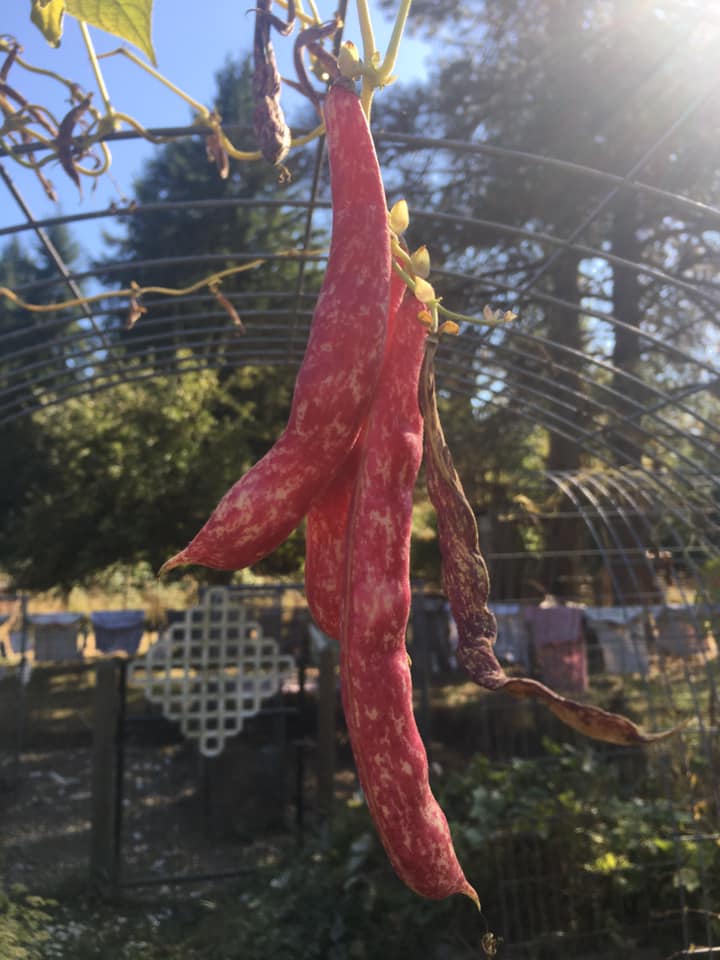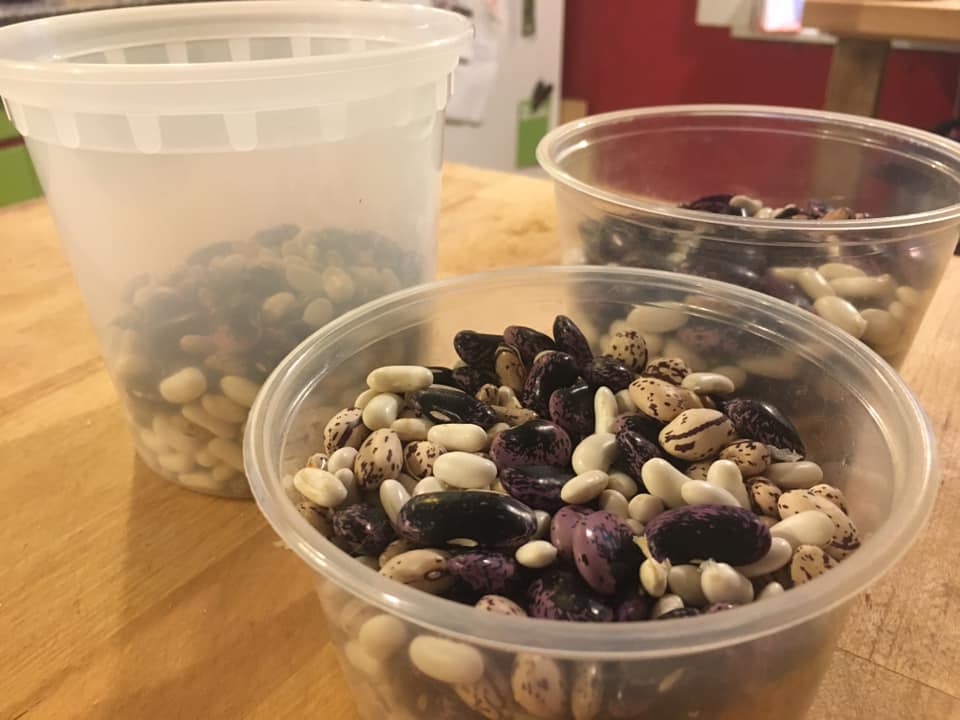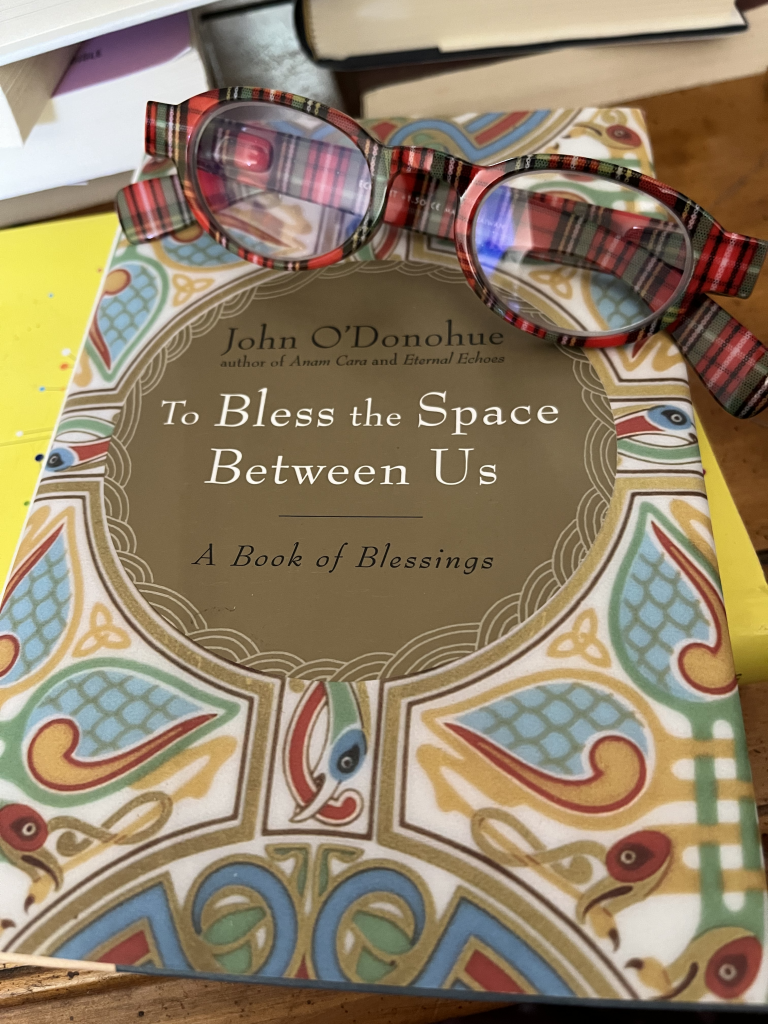
Since April this book, To Bless the Space Between Us, has been my daily devotional reader. Each morning, I’ve read a blessing as part of my spiritual practices. Some of the blessings were relatable for me and I simply accepted the blessing, and others were not, as some of these are very specific. Blessings for a New Father, for instance, doesn’t apply to me. But when I read a blessing that didn’t apply to me I either pictured someone I knew who fit that blessing or I pictured an unknown person out there who needed that blessing and I sent it off to them.
I have never been part of a Blessing culture or faith, but I have felt deeply drawn to the practice and I love what John O Donohue says about who can bless:
Who has the power to bless? This question is not to be answered simply by the description of one’s institutional status or membership. But perhaps there are deeper questions hidden here: What do you bless with? Or where do you bless from? When you bless another, you first gather yourself; you reach below your surface mind and personality, down to the deeper source within you – namely, the soul. Blessing is from soul to soul. And the key to who you are is your soul.
That makes perfect sense to me. To offer a blessing is to reach down into your depths, which some may call a soul. This practice for these months has felt expansive and deeply loving, touching down into my soul depths. Deep gratitude to John O’Donohue for offering these blessings to us all.
